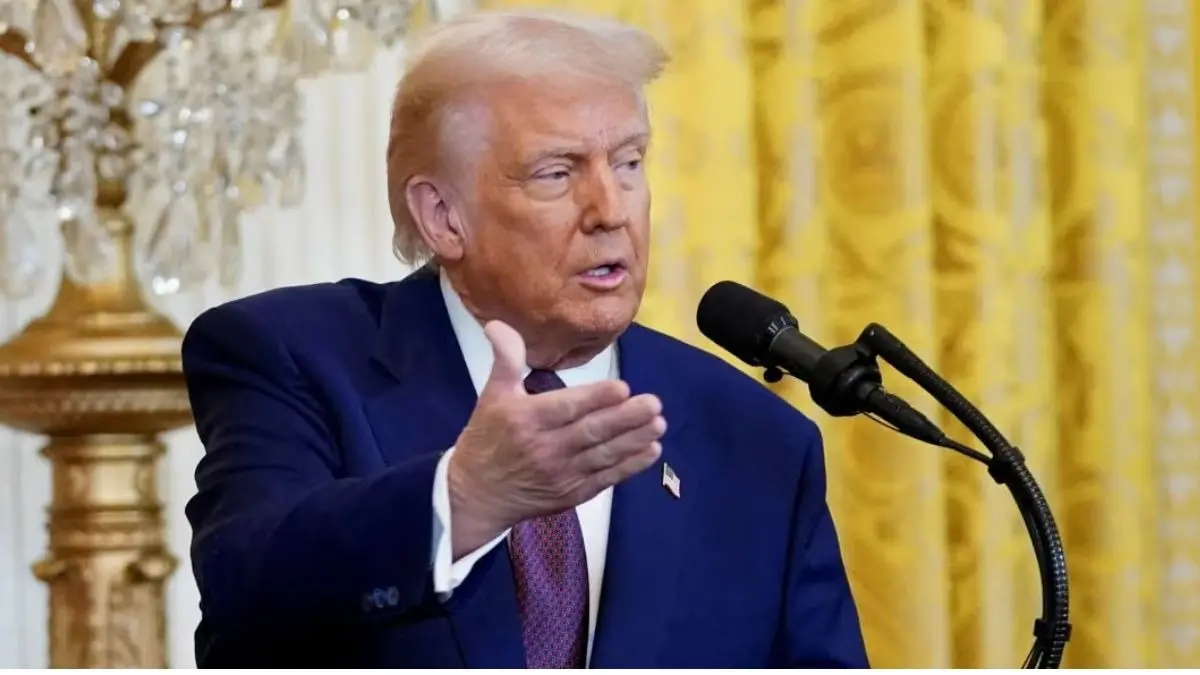Updated 16 May 2025 at 19:23 IST
Trump to Unilaterally Set Tariff Rates, Citing Lack of Time for Trade Talks
Speaking at a business roundtable at the close of his Middle East trip, Trump said the U.S. doesn’t have the capacity to negotiate with every country at once.
- World News
- 2 min read

President Donald Trump on Friday announced that the United States will begin unilaterally setting tariff rates for many of its trading partners within the next two to three weeks, stepping back from earlier efforts to strike bilateral trade deals.
Speaking at a business roundtable at the close of his Middle East trip, Trump said the U.S. doesn’t have the capacity to negotiate with every country at once and would now move forward by informing nations of what they’ll need to pay to do business in the American market.
“At a certain point over the next two to three weeks I think Scott and Howard will be sending letters out essentially telling people ... we’ll be telling people what they’ll be paying to do business in the United States,” Trump said, referring to Treasury Secretary Scott Bessent and Commerce Secretary Howard Lutnick.
“I guess you could say they could appeal it, but for the most part I think we’re going to be very fair. But it’s not possible to meet the number of people that want to see us.”
Unilateral move follows earlier pause
The U.S. had already moved in this direction last month on what Trump dubbed “Liberation Day,” when his administration rolled out a global baseline tariff of 10%.
Trade talks with a handful of key countries — including Japan, South Korea, and India — have made progress, but many others remain unresolved.
Advertisement
Mixed signals and market jitters
Commerce Secretary Lutnick has already said the 10% global tariff will remain in place. However, it remains unclear how the administration will approach countries that were initially facing higher, reciprocal tariffs and are now waiting for clarity.
The lack of detail has added to market uncertainty.
Advertisement
Pressure building on consumers
While economic data so far suggests the U.S. economy is holding up amid the tariff standoff, cracks are beginning to show. Walmart, one of America’s largest retailers, announced Thursday that it could no longer fully absorb the costs of the tariffs and would begin passing them on to consumers.
Business groups are closely waiting for the administration’s next steps.
Published By : Sagar Kar
Published On: 16 May 2025 at 19:23 IST
